US Navy Rear Admiral Kenneth Whitesell praised HMS Queen Elizabeth saying the vessel would ease stress on the US fleet.
Speaking from the bridge of the USS George H.W. Bush, the Rear Admiral was quoted in The News, Portsmouth here:
“We have been fighting essentially since 1991 with Desert Storm and Desert Shield. So both the metal side of that – our hardware as well as our software, our human beings – have been worn out over the last decade.
To be able to bring Queen Elizabeth as well as the Prince of Wales in is going to be an incredible game-changer for us because now we can share some of that responsibility.
This is a world game-changer, it’s a good for the “good guys†and it’s not too good for the bad guys.”
The USS George H.W. Bush had UK personnel on board as part of the UK-US Long Lead Specialist Skills Programme which the Royal Navy say qualifies them in US carrier operations in preparation for the arrival of HMS Queen Elizabeth.
Commodore Andrew Benton, Commander UK Carrier Strike Group said:
“Exercise Saxon Warrior is a large, multinational joint exercise which involves fifteen warships from five different nations, submarines, over 100 aircraft and about 9,000 personnel.”
As we reported in January, Saxon Warrior is an exercise designed to develop ‘theatre-specific combat skills’ as well as enhance cooperation between multi-national forces.
Led by Flag Officer Sea Training (FOST), Saxon Warrior presents a ‘myriad of challenges to the multi-national and multi-platform force by creating a diverse and unpredictable war environment based on fictional geo-political and military scenarios’.
Cmdr Eric Retz, US Navy Carrier Strike Group 2’s operations officer, said of the exercise:
“Saxon Warrior will test every aspect of our war-fighting capabilities-from air wing strikes to the self-defenxe of the carrier.
The beauty of operating with coalition partners is that we practice with them, learn their strengths, and then blend those strengths together to make the most potent coalition force possible.”



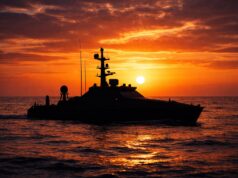

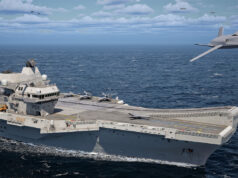

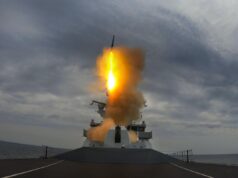
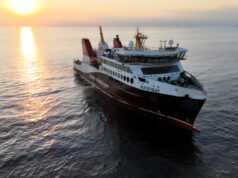
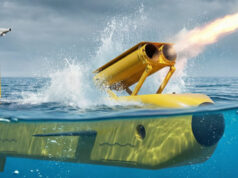
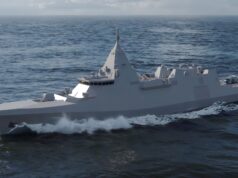
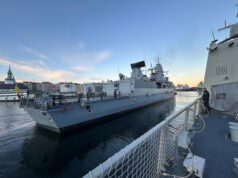
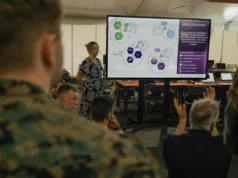

Although obviously the QE class carriers are a UK asset i would not get too hung up on the US being enthusiastic about the class. The US admiral is right though NATO needs to share the burden of deployments currently falling on the US navy. If you take out the US navy NATO and its close allies can only muster 3 strike carriers (Charles de Gaulle, when actually in service and the 2 QE class) and some 6 lphds (2 Australian, 1 Spanish, 3 French), +1 lph (hms ocean, soon to be scrapped without replacement) and 3 light vstovl carriers/ anti sub carriers (1 Spanish in reserve) and 2 Italian cavour and garibaldi.
Not exactly an impressive force and aside from Charles de Gaulle’s recent deployments to attack isis none of the other vessels named have contributed directly to anti Islamic state combat. Cavour has spent some time on migrant rescue operations in the med but that is it.
I think the Aussies will get involved more heavily with their rejuvenated navy.
What I am alluding too is inactivity by nato with the weak forces the European members can contribute.
I am still not convinced that there really is a need for carriers in 2017.
If you consider that a carrier task force is vital, then NATO exUSA is lacking, however which war outside the Falklands has a carrier actually been needed. There have been a few cases where a carrier have made things easier, but actually being needed, i am less convinced. Outside a war against a multi-country opponent, there is always going to be friendly airbases around that can be used.
So considering that, would the £6b have been better spent on say 6 more escorts to protect our trade routes? Hard to say, but certainly there is an argument for it and as such, I can’t blame the NATO nations for putting their limited resources elsewhere, especially considering their public finances are at least as bad as ours if not worse in most cases.
I disagree, we need operational platforms more than ever before. The carrier offers numerous scenario opportunities, that are currently unavailable. To be able to physically participate in humanitarian operations is a huge increase in capability. To actually operate fleets of helicopters in the event of an evacuation, is a priceless addition to the RN. If and when the carriers are required to operate in a conventional capacity, then international cooperation, will be available too. A closer military union with the US is inevitable, especially after Brexit, and the QE carriers are truly useful vessels. No, the carriers will enable the UK government to offer tangible support, both military and humanitarian. The planet is awakening and its environments are shifting in a worrying direction, so we need to be ready to use all our assets including military ones.
Yes spend it on foreign aid.
I agree with Steve,
for me £6bn equates to 6-8 more astutes which provide more bite or a further 3 astutes and 6 T31 which gives more balance.
At the end of the day though we have these things and they will either cement our position as NATO’s pre-eminent European power or become a massive burden to the RN. Either way they are here now and do provide a strategic capability that is useful on occasion.
The UK will be able to provide NATO with a carrier group in the non-to-distant future which is a step change in our capability.
Coalition operations are what’s on offer now, only the US superpower could deploy a substantial self contained force.
And even they are very keen to work closely with their allies around the world, without coalition partners even the US would be stretched beyond breaking point.
UK ships are leading two NATO task groups in the Med etc, we have had amphibious forces working from French ships and Type 23’s and Type 45’s have been embedded with US and French carrier groups, gaining valuable experience.
Hopefully other NATO nations will provide escorts for our carriers.
More than ever coalition ops are the way ahead, for all NATO members.
Jack is right coalition ops are the current requirement and thus (due to RN lack of escort vessels) we would expect other EU NATO members to contribute to QE class defence.
The RN does however need the capability to go it alone if needed thus adequate escort warships and subs are needed. Come on national ship building plan.
RN needs to voice a requirement to man 26 escorts and 10 SSNs as our agreed minimum. I disagree about the QE class starving funds to rest of RN as any nation sending £13 billion a year abroad as a foreign aid gift to corrupt nations and failing states has clearly lost the plot about priorities. The question should be hard power national defence vs soft power? I know which one i would prefer. Hard power and ability to defend uk interests against known aggressor nations. We should be able to face down any Russian task force or submarine threat. Years gone by we easily would have been able too.
Time to go back to plan A which has always served this nation well. A strong Royal navy.
I absolutely agree with your post Mr Bell. 26 escorts and 10 SSN’s should have been the minimum force level of these assets. Going below that level was/is a very dangerous gamble with our National Security.
Problem being, the vast majority of the public only care about their tax credits and what other hand outs the country can give them.
The state of the Royal Navy isn’t even on their radar, as a result of it not being a vote winner, politicians will never properly fund defence unless they are forced too by circumstances.
Had the carriers been cancelled at an early stage, I have no doubt the Navy would still be pared to the bone.
I agree with you Mr Bell and will go further.
The equipment budget is 17.8bn p.a (178 over 10 years) out of which very little seems to go on purchasing actual new equipment. The majority of this is spent on outsource service contracts from my analysis.
The RN can have a sustainable 75 ship Navy that is able to build 3 large vessels p.a. And 10-20 small vessel and RHIBS pa indefinitately if we provide £3bn On new ships and be very disciplined in removing older ships from the fleet and stop all life extension programs as they become a “cottage industry” in themselves.
Likewise the Army could do with £3bn p.a for equipment and the Airforce £4bn p.a for equipment and to make everything simple each service is accountable for all assets in their domain and no service operates assets outside of its core domain (ie: all Aircraft are RAF, all land systems are Army, all sea assets are RN).
A £40bn p.a. Defence budget is more than adequate for our needs and should allow us to field 4 combat divisions and a military of 250k personnel (as per the French). The USMC have a larger aircraft fleet, are better equipped and more personnel than the whole of the UKAF and do it on $30bn or less p.a. Surely we can replicate this and then use the additional budget ($20bn) we have to have a viable RN/Civilian/other, as the USMC budget does not cover everything.
Soft power only works when you have the ability to deploy hard power, the UK may be limited in its future military capability but having a USMC style capability is one I think we should aim for as it is has a clear expeditionary remit (and we are an island) and is of a similar size to what the UK seemingly wishes to have as their UKAF.
I therefore think the above comparison gives a solid land force, excellent airforce, astrengthened RN and improved special forces capability.
Our military leadership need to dig deep and show some actual leadership – time for a single defence force like the USMC and IDF, who have demonstrated that it can work.
Nothing will change unless the leaders get a clear budget figure for their forces and for the RN I think this figure is circa £9bn (exc. RM), £10bn with RM.
Australian media are reporting that Michael Fallon is “set to release Britain’s frigate shipbuilding strategy in coming weeks”.
Will we see the Type 31 built, to create and support jobs, in multiple shipyards and in the numbers we need to realise the ambitions recently set by Michael Fallon?
A Smith.
i would love to believe that, truly I would but with all the false hopes and dashed promises recently, i no longer believe any politician until the contract is signed.
In recent years we have had
type 45 destroyer numbers reduced to just 6
type 26 frigate numbers reduced from 13 to 8
SSN and SSK sub numbers reduced from 12 SSNs and 4 SSKs in 1998 to just 7 SSNs now.
RFA Diligence scrapped without replacement
HMS Ocean about to be scrapped or sold leaving no LPH for amphibious assault or to act as an ASW carrier.
Most worrying was the reduction of frontline RN service personnel to just 22,000.
As of 2018 no anti ship missiles in RN service.
Summary: a recent history of broken promises and failed defence procurement, whilst cutting numbers of service personnel. No wonder the MOD is struggling now to recruit into all 3 services
Bottom line is we are spending too little on defence.
We should be spending at least 3% and probably more.
When you take into consideration maintenance and training our available forces are pitifully small.